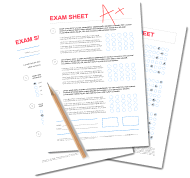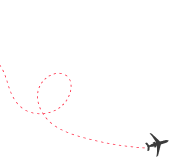Understanding IELTSBand Scores
IELTS band scores range from 0 to 9
The average of all four sections is reflected as an overall score

Introduction
IELTS band score: IELTS is one of the most common English language proficiency tests which is acknowledged by premier universities overseas. However, this test analyzes your proficiency and skills to survive in an English-speaking country. The expertise is determined by the band you have scored. The band is a standard measuring unit that evaluates each candidate fairly. For each section of IELTS, Reading, Speaking, Listening and Writing, a separate band is given along with the overall band. Thus, the test taker needs to prepare well to get a higher score. However, if you cannot do it by yourself, joining offline or online IELTS classes is a smart move.

Understanding Overall IELTS Band Scores
There are 9 levels or band scores that an IELTS test taker can achieve. Each test component (Listening, Writing, Weading, and Speaking) gets a separate band score. These individual scores are averaged to determine the overall IELTS band score, which is then rounded to the nearest whole or half score. Each of these IELTS scores has a different meaning and differentiates one user from another on the basis of their English language skills.
Breakdown of IELTS Band Score
IELTS band scores range from 0 to 9 and reflect different levels of English proficiency:
- Band 9: Expert user
- Band 8: Very good user
- Band 7: Good user
- Band 6: Competent user
- Band 5: Modest user
- Band 4: Limited user
- Band 3: Extremely limited user
- Band 2: Intermittent user
- Band 1: Non-user
- Band 0: Did not attempt the test
Lets's go through the table below to understand different IELTS band score in detail:
| BAND SCORE & SKILL LEVEL | DESCRIPTION OF BAND SCORE |
|---|---|
| BAND 9: EXPERT USER | The test taker has a complete operational understanding of the language.Their use of the language is appropriate, fluent and accurate. |
| BAND 8: VERY GOOD USER | The test taker has full command over the language but might make some mistakes in unfamiliar situations.They can handle detailed and complex arguments well, but can misunderstand some points in unfamiliar situations. |
| BAND 7: GOOD USER | The test taker has operational command over the language but can use inappropriate and inaccurate language in some situations.They can generally handle complex language well and understand detailed reasoning. |
| BAND 6: COMPETENT USER | The test taker has an effective language command despite some inaccuracies and misunderstandings.They can use reasonable complex language, specifically in familiar situations. |
| BAND 5: MODEST USER | The test taker has a partial command over the language and copes well with overall meaning in most situations.They should be able to understand and handle basic communication. |
| BAND 4: LIMITED USER | Their language expertise can handle only familiar situations and frequent problems in expressing.They frequently show problems and understand and express. |
| BAND 3: EXTREMELY LIMITED USER | The test taker can convey and understand only general meaning in very familiar situations.There can be frequent breakdowns in communication. |
| BAND 2: INTERMITTENT USER | The test taker has very difficulty understanding written and spoken English. |
| BAND 1: NON-USER | The test is not able to use the language except only a few isolated words. |
| BAND 0: DID NOT ATTEMPT THE TEST | The test taker did not answer any questions. |
So, after going through the table, you must have got an idea of the overall band score and their description. However, the IELTS score for each section of the test is given separately. Thus, to understand them, read further.
IELTS Listening Band Score
The IELTS listening section consists of 4 different tasks, and the test taker needs to answer 40 questions. Moreover, if the answer to a particular question is correct, you aspirants will be allotted 1 mark each. Thus, the total correct answers will determine the raw score on the IELTS band score chart. However, you must ensure not to leave any answer blank, as you will not receive any marks. Furthermore, go through the table below to explore how your raw scores are converted into band scores for the listening section:
| RAW SCORE (NO. OF CORRECT ANSWERS) | BAND SCORES FOR LISTENING SECTION |
|---|---|
| 39-40 | 9 |
| 37-38 | 8.5 |
| 35-36 | 8 |
| 32-34 | 7.5 |
| 30-31 | 7 |
| 26-29 | 6.5 |
| 23-25 | 6 |
| 18-22 | 5.5 |
| 16-17 | 5 |
| 13-15 | 4.5 |
| 11-12 | 4 |
The IELTS band score in the table can slightly vary as these are the average number of marks required for specific band. These might vary as per the variation in the listening questions as per different occasions.

 Access Listening Mock Test
Access Listening Mock Test IELTS Reading Band Score
IELTS band score for reading are calculated on the basis of number of correct answers you have given for the total of 40 questions. Thus, you will get one mark for each right answer, which will determine your score for the test. Moreover, you must answer all the questions, as there is no mark for a blank answer. However, the IELTS score chartis unlike for different types of IELTS that is academic and general training. So, let’s understand each separately.
IELTS Academic Reading Band Score Chart
| RAW SCORE (NO. OF CORRECT ANSWERS) | BAND SCORES FOR IELTS ACADEMIC READING SECTION |
|---|---|
| 40-39 | 9 |
| 38-37 | 8.5 |
| 36-35 | 8 |
| 34-33 | 7.5 |
| 32-30 | 7 |
| 29-27 | 6.5 |
| 26-23 | 6 |
| 22-19 | 5.5 |
| 18-15 | 5 |
| 14-13 | 4.5 |
| 12-10 | 4 |
| 9-8 | 3.5 |
IELTS General Training Reading Band Score Chart
| RAW SCORE (NO. OF CORRECT ANSWERS) | BAND SCORES FOR IELTS TRAINING READING SECTION |
|---|---|
| 40 | 9 |
| 39 | 8.5 |
| 37-38 | 8 |
| 36 | 7.5 |
| 34-35 | 7 |
| 32-33 | 6.5 |
| 30-31 | 6 |
| 27-29 | 5.5 |
| 23-26 | 5 |
| 19-22 | 4.5 |
These are the raw scores of both the types of IELTS test for the reading section. However, these are only the highlighted average number of marks, and the required ones for a particular band can vary as per the situation and the occasions.

 Take Reading Mock Test Now!
Take Reading Mock Test Now! IELTS Speaking Band Score
The speaking test is a face-to-face interview where you will be recorded while answering. In the speaking section of the IELTS test, an examiner wants to analyze your spoken English on several parameters on which your band scores will be calculated. So, the table below will help you to know these factors:
| PARAMETERS | DESCRIPTION |
|---|---|
| FLUENCY | Speak without hesitation or stopping in the middle of a conversation.Using connectors or connecting words to make it easily understandable. |
| LEXICAL RESOURCES | Paraphrasing or saying a particular thing differently.Using a wide range of words that go well together.Using uncommon words correctly without being afraid. |
| GRAMMAR RANGE & ACCURACY | Do not speak any sentence with grammar issues.Avoid using an accent that is difficult to understand.Use sentences having the correct structure. |
| PRONUNCIATION | Can understood throughout the speech using intonation and accent should not be affecting the accurate pronunciation. |
Each criterion in the table above carries equal weight and gives the overall scores for the IELTS speaking section. Thus, a test taker needs to work on each of them while they prepare for IELTS speaking section. However, if you want to want to explore these parameters in detail, read more at:

 Access speaking Mock Test
Access speaking Mock Test IELTS Writing Band Score
Writing can be the most challenging section, which can hamper the IELTS band chart significantly. However, if you know the parameters on which you will be judged, then it will be an easy one. Thus, the table below will help you get along with these factors:
| PARAMETERS | DESCRIPTION |
|---|---|
| TASK ACHIEVEMENT (FOR TASK1) | Present precise information with a proper overview that highlights crucial features supported with correct data. |
| TASK RESPONSE (FOR TASK2) | Attending the task, giving relevant supporting points for the given answer stating opinion for a clear conclusion. |
| COHESION & COHERENCE | Organising ideas into paragraphs and each of them having a central idea using a wide range of connectors. |
| LEXICAL RESOURCE | Spellings using collocation without errors and paragraphs using a range of words correctly at the places needed. |
| GRAMMAR RANGE & ACCURACY | Use a wide range of grammar tenses, sentence structures, prognostications, and avoiding errors. |
These are the parameters that a test taker needs to practice if they want to crack the exam in their first attempt. Although, if you want to explore them in detail, read more at:
 Take Writing Mock Test Now!
Take Writing Mock Test Now! 
Raw Scores And Band Scores In IELTS
In the listening and reading sections of the IELTS test, the scores depend on the number of correct answers you have given. This means your scores are calculated out of 40, and then these are converted into the band scores.For example, if you answered 39 questions correctly, you will receive a 9 band score.In the writing section of the IELTS exam, you will be evaluated on Task Achievement, which is task 1 and Task Response, which is task 2. The parameters to judge them are Lexical resource, coherence and cohesion and grammar range and accuracy.In the speaking section, you are evaluated on Grammatical Range and Accuracy, Fluency and Coherence, Lexical Resources, and Pronunciation.
How Is The IELTS Overall Score Calculated?
Calculating the IELTS band score is an easy task. You will receive scores on a scale of 1-9, where 1 is the lowest and 9 is the maximum score. You will be getting separate scores for each section of the test: reading, writing, speaking, and listening, as well as an overall score. These will be rounded off to the nearest whole or half band. Thus, you can get 3.5, 5 or 9.
To calculate an IELTS score, you need to know that the overall score of the test depends on the mean score of all four sections: Reading, Listening, Speaking, and Writing. Each of these sections carries equal weightage of the scores, and your overall score will be rounded off to the nearest half or whole.
To understand this better, have a look at the example below:
Reading: 6.5
Writing: 5
Listening: 6.5
Speaking: 7
Average of all four skills: 6.25
Overall Score: 6.5
Tips To Increase Your IELTS Band Scores
Explore how you can improve your IELTS band score without much ado:
- Know the Test Format: Without knowing the format of the exam, you cannot prepare for it. Thus, start your preparation by perceiving what the test actually is.
- Practice More and More: Practice makes a man perfect, so do not leave any stone unturned while practising.
- Focus on Your Grammar: Grammar is the most crucial thing in any language. Therefore, work on improving the grammar.
- Know the Key Terms: Key terms or focus words are the ones that can explain the essence of the entire sentence. So, practice to find them out.
- Improve Time Management: Entire IELTS test revolves around managing time effectively. As without this your might leave you test incomplete. Thus, learn to manage time adequately.
- Advance Your Vocabulary:Using a wide range of vocabulary correctly can leave a strong impression. Thus, learn new words and their usage.


Conclusion:
In conclusion, the IELTS band score is the genuine and appropriate criterion for evaluating the performance of a test taker without any bias. These scores ranges from 1-9 on the scale where 9 band is the highest and 1 band is the lowest. Thus, understanding this is essential for an aspirant before they appear for the exam. Moreover, to have accurate knowledge of the scores, reach out to experts at Gradding.com and unlock the doors to success.
Buy Mock Test Package and get Flat 50% OFF
Reach the Desired Scores and Stand on Top with the Best Guidance. Talk to Experts for ielts Counselling!

Predict Your IELTS Band Score forFree with our Band Predictor Tool!
![]() Analyze Your Module-wise Preparation
Analyze Your Module-wise Preparation
![]() 100+ Mock Tests by Expert IELTS Faculty
100+ Mock Tests by Expert IELTS Faculty
Frequently Asked Questions
The overall band scores for the IELTS is calculated by taking the mean of all the four sections of the test. Moreover, if you have received scores like: 0.25 or 0.75, then they need to be rounded off to the nearest whole number.
Yes! The band score for each section of the IELTS test can be different. It is common to score differently as each part is evaluated separately.
The minimum IELTS band scores are different for different universities as well as countries. Thus, you need to check the requirements of the specific institute or nation you are applying to.
The highest possible band score is 9 band. This score indicates the expert level of English language proficiency. Reaching this can be difficult, but with appropriate planning and contentious practice, you can achieve it.
YES! each section of the IELTS test contains equal weightage in determining the overall band score of the test.

Claim free IELTS Classes now!
We will help you secure admission in Top Universities Abroad with Completely FREE IELTS Coaching









